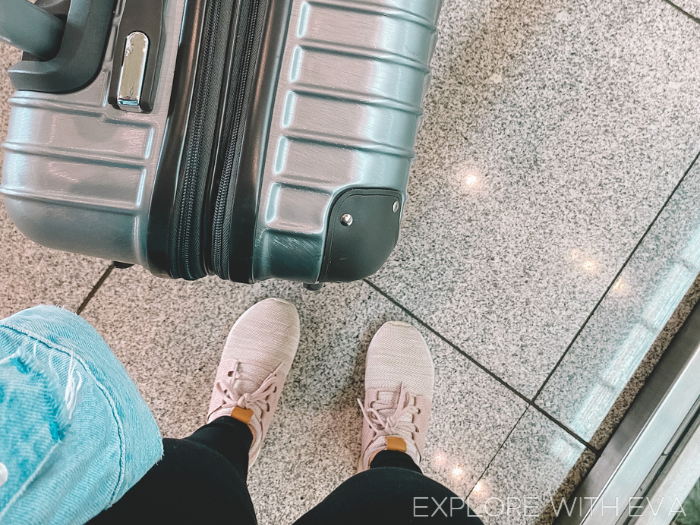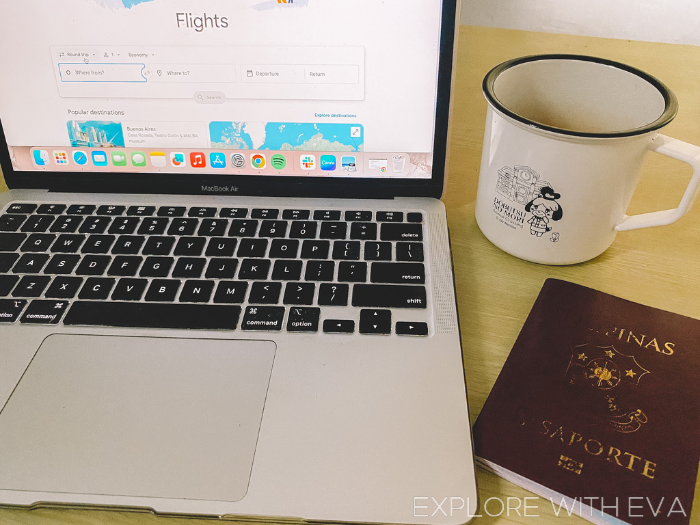Traveling can be expensive.
Depending on the travel date and if you don't know where to look, flights alone can cost an arm and a leg. Accommodations, tours, and food can be pricey too if you don't do your research and plan your trip in advance.
However, there are still ways to save money and minimize expenses on your trips. Here are some tried and tested tips.
Tips for Traveling on a Budget
1. Travel during the off-peak season.
This is my top tip if you want to travel on a budget. During off-peak season, prices for flights, accommodations, and attractions tend to be lower. That's because there's less demand. Check for the best time to visit your destination and consider traveling during shoulder seasons or weekdays.
For example, the best time to visit Europe is during summer from July to August. Last year, I traveled to Europe in September and October when there were fewer tourists and prices for everything are significantly lower. Plus, the weather wasn't that bad.
2. Research and plan in advance.
Researching and planning your activities in advance can help you find discounted tickets, deals, or free attractions. For example, most museums in Europe offer free entry on the first Sunday of every month.
Also, look for city passes or attraction bundles that offer discounted rates for multiple attractions. This helped me a lot, especially in cities where there are lots of attractions that you can visit in a day.
3. Be flexible with your travel dates and use Google Flights to compare flights.
There are lots of search tools or fare comparison websites out there that you can use to find the cheapest flights. The one that I'd recommend using is Google Flights because it directs you to the airline's website instead of a third-party website.
Booking directly through the airlines gets you the cheapest rates because third-party sites tend to charge extra for service fees. Be open to adjusting your travel dates by a few days if it means saving more money.
4. Consider budget accommodation options.
Depending on your travel destination, accommodations can get really pricey. Consider staying in budget accommodations like hostels, guesthouses, or budget hotels. These options are often cheaper than luxury hotels while still providing decent quality. I, for one, prefer to book at budget hotels because I prefer having some privacy.
When looking for budget accommodations, make sure to read reviews on the website and on Google Reviews so that you'll know what to expect. Saving money shouldn't mean sacrificing comfort, cleanliness, and the quality of service that you can get.
5. Don't eat at restaurants near tourist attractions.
When you go to a tourist attraction, you'd most likely find a restaurant nearby. Avoid it at all costs! These restaurants are often tourist traps because they charge more for the same dishes that you can get at other places. And the quality isn't really that good.
Instead, walk a few blocks away from the tourist attraction and you'd be able to find restaurants that serve the same dish while charging less and offering better service and quality.
6. Use public transportation.
Instead of relying on taxis, rental cars, or ride-sharing services like Uber and Bolt, use public transportation options. In big cities, there are often multiple options for public transportation, such as buses, trains, or subways. Public transportation is usually cheaper and can give you a more authentic local experience.
7. Explore free attractions and activities.
Many destinations offer free or low-cost attractions, such as parks, museums with free admission days, walking tours, or local festivals. Make sure to research what your destination will offer so that you can advantage of these opportunities to explore and experience the culture without breaking the bank.
8. Travel like a local.
Have you ever gone to an attraction where you spent a lot of money without getting much value from it? You pay a lot and end up waiting in line just to see something, then ended up realizing that it wasn't worth the time or money. These are called tourist traps.
Avoid tourist traps and inflated prices by exploring local markets, restaurants, and neighborhoods. Interact with locals and ask for recommendations so you can get more affordable and authentic experiences.
9. Pack light.
More luggage leads to additional expenses. By packing only the essentials, you can avoid excess baggage fees. Additionally, having lightweight and compact luggage will make it easier to navigate public transportation and save you from the hassle of carrying unnecessary items.
10. Use travel rewards and loyalty programs.
When you book with only one airline or when you use only one portal for booking hotels and activities, you tend to rack up points. Take advantage of these points so that you can get discounts for future bookings.
As long as you follow the tips discussed above, traveling on a budget is easier than you think. If you have any questions or if you have more tips to share, feel free to comment below.
Happy travels!





0 Comments